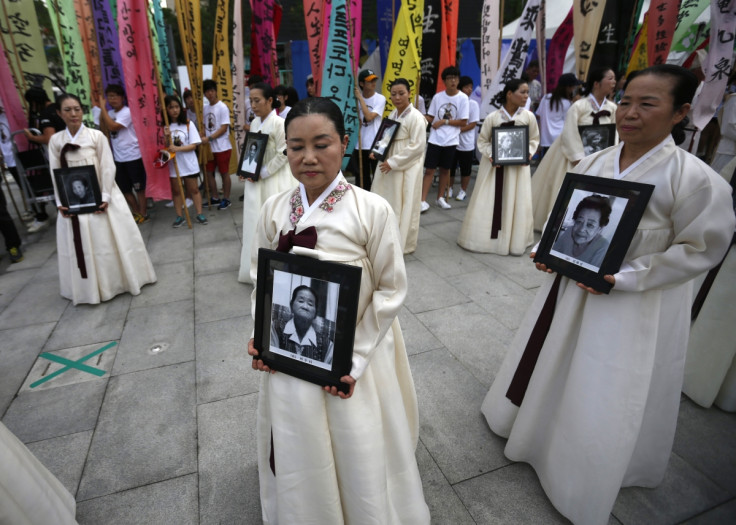South Korea Shames Japan Over Wartime Sex Slaves [VIDEO]

South Korean President Park Geun-hye has warned Japan it will only bring isolation on itself if it reviews an apology over its use of wartime sex slavery and prostitution.
Her warning, in a speech marking the anniversary of a 1919 uprising in Korea against Japanese colonial rule, coincided with the opening of an exhibition on "comfort women" in Seoul, a euphemism for women who were forced into prostitution at Japanese military brothels during the second world war.
Japan apologised in 1993 to the thousands of women who were forced into army brothels.
But on Friday, Tokyo said it would set up a panel to review the evidence on which that apology was based.
"Historical truth is in testimony from the survivors. Japan would only bring isolation on itself if it turns a deaf ear to their testimony and sweeps it under the rug for political benefits," President Park told Channel NewsAsia.
The South Korean president called on Japan to follow Germany in apologising for its wartime record, so that the two countries could "move forward for a new era of cooperation, peace and prosperity".
"I hope Japan extricates itself from denial of history and starts making a new history of truth and reconciliation," she said.
On display at the History Museum in Seoul are comics featuring the plight of comfort women as well as artworks by survivors.
The display included a diary kept by an operator of a second world war Japanese military brothel, which South Korea says is evidence to prove coercion in sexual slavery.
In 1993, after hearing testimony from 16 Korean women, Japan's chief cabinet secretary Yohei Kono issued a statement acknowledging official complicity in the coercion of women into sex slavery.
The statement offered "sincere apologies and remorse" to the women and promised to face the historical facts.
In remarks in 2007 that triggered outrage, Shinzo Abe in his first term as prime minister said there was no evidence that Japan directly forced women to work as sex slaves.
Historians say up to 200,000 women, mostly from Korea but also from China, Indonesia, the Philippines and Taiwan, were forced to serve as sex slaves in Japanese army brothels.
Learn more about the issue on YouTube, below.
© Copyright IBTimes 2025. All rights reserved.




















